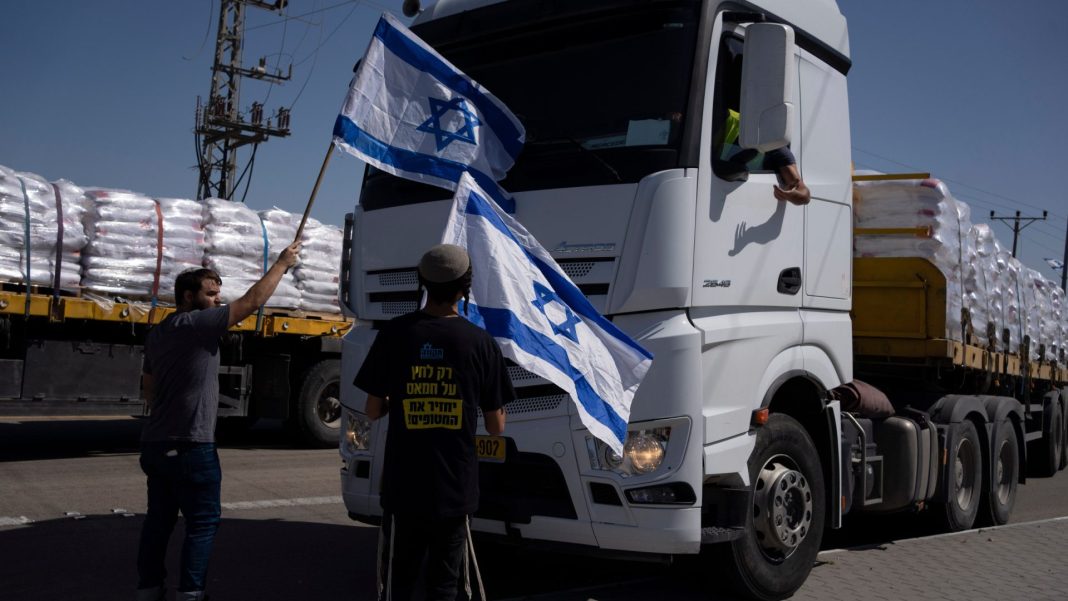The three organizations described as ‘far-right’ have reportedly slowed down aid supplies by either blocking trucks on their way to Gaza, or by causing traffic jams and even standing in front of Kerem Shalom, the main crossing into the Palestinian enclave.
According to inquiries into crowdfunding websites and other public records conducted by the news agency and the Israeli investigative site Shomrim, three groups, including one accused of looting or destroying supplies, have raised over $200,000 via contributions from the US and Israel.
Mother’s March has reportedly raised the equivalent of over $125,000 through the Israeli crowdfunding site Givechack, the AP and Shomrim found. The group also raised some $13,000 via JGive, a US and Israeli crowdfunding site.
The report claims that the organization doesn’t not raise money directly, but works via an allied group called Torat Lechima, which says its goal is to “strengthen the Jewish identity and fighting spirit” among Israeli soldiers. A third group, Tzav 9, raised over $85,000 from just under 1,500 donors in the US and Israel via JGive.
The report alleges that the donations have been incentivized by making them tax-deductible. It noted that practices of this kind contradict a pledge by the US and Israel to allow unlimited flows of food and medicine into war-ravaged Gaza. Donations continued even after Washington introduced sanctions against Tzav 9.
“If you’re on the one hand saying you’re allowing aid in but then also facilitating the actions of groups that are blocking it, can you really say you’re facilitating aid?” Tania Hary, executive director of Israeli nonprofit Gisha, told AP. She added Israel has shown a “lack of coherence” in its Gaza aid policy.
Сommenting on the report, the US State Department told the news agency that Washington was committed to ensuring the delivery of humanitarian aid to Gaza. Neither US nor Israeli officials commented on the fundraising efforts by the far-right groups.
Nine months into the war in Gaza, the issue of humanitarian aid deliveries to the territory is of increasing importance. Earlier this month, a group of independent UN human rights experts accused Israel of conducting a “targeted starvation campaign”, saying that 34 people, most of them children, had died of malnutrition in the enclave since October 7.
